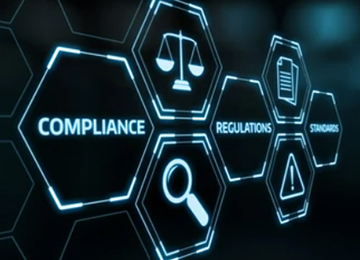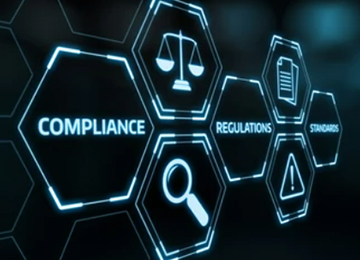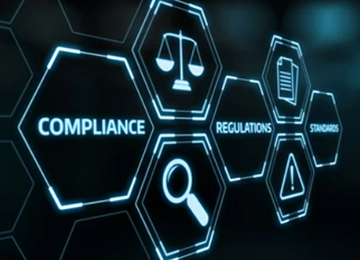
S R Senapati ( Consultant-Author)
( Part A of series- commentary )
Prevention of Money Laundering Act( in short PMLA) was enacted in 2002. This PMLA is a very interesting Act to deal with economic offences extending whole of India particularly in the matter of Money Laundering & this Act was enacted due to United Nations General Assembly Resolution & Declaration (i) to prevent money laundering , (ii) to provide for confiscation of Properties involved or connected to such money laundering & (iii) to deal with matters connected or incidental to such money laundering activities.
How is this PMLA interesting ?
1.)This Act extends to whole of India inclusive of J & K as well to exclusive economic zone(EEZ) in maritime territory under jurisdiction of India;
2.) The Provisions of this PMLA are application of combinations of certain principles on some Provisions of Income Tax Act particularly survey,search & seizure & treatment of Assets seized , some Provisions of Benami Act ,some provisions of prevention of corruption Act & some Provisions of Indian Penal Code & Criminal Procedure Code relating to economic offences & seizure of Properties;
3.) This PMLA being a special Act to deal with economic offences like money laundering, its provisions usually override general provisions dealing with such economic offences under IPC read with Cr PC & In case of conflict or contradiction among such special vis-a-vis general provisions the interpretation by Courts shall be Final;
4.) The functional provisions of PMLA deal quasi-judicial functions of executives till dealing with attachment & confiscation of properties for specified period as per provisions of Income Tax Act, the reference is made to Adjudication Authority( which is more judicial in nature of functions as one member being from Law-minimum in the rank of District judge or a member of Indian Legal Service) & the judicial functions by the Appellate Tribunal( Chairperson is a Judge of Supreme court or High Court) constituted under PMLA to finalise quantum,nature & status of attachment & confiscation of properties under PMLA;
5.) Other Part deals with economic crime through regular trial court of Spl. judge constituted for trying offences under PMLA which is more or less regulated procedurally by CrPC r.w.PMLA & Evidence Act which is purely judicial function but the quantum of punishment is as per PMLA;
6.) What is this money laundering ? Section 3 of PMLA defines such - directly or indirectly attempts to indulge , or knowingly assist or knowingly is a party or knowingly is involved actually in process of handling, managing or dealing with in any manner -the proceeds of crime & projecting as untainted property- knowledge is necessary of such crime, that crime is in nature of economic offence , may be arising from corruption or benami or fraud or cheating etc , proceeds of crime may be monetary, or may be related to any type of property or any material gains;
7.) Before search & seizure & post search investigation, PMLA Authority should have ‘Reason to Believe on material in Possession’( here material is real & written/documents or if oral supported & corroborated by documents) - Material in Possession may be from other law enforcing agencies like CBI, GST,Income Tax etc., but material in possession should be Credible & authentic regarding flow/utilization of proceeds of Crime.Firstly, one ECIR(Enforcement Crime Information Report) is drawn by the PMLA Authority( Parallel to FIR-First Information Report of Police Authority), the search & seizure is done for seizing properties directly or indirectly related to proceeds of crime & seizing related documents thereof & then post search/seizure investigation is effected for filing chargesheet/Final report like under s.173(2) or 173(8) of Cr PC before Learned Court PMLA for cognizance & trial thereof;
8.) Interestingly, search & seizure procedures under PMLA are similar to that of section 132(search & seizure) & 133A( power of survey) of Income Tax Act 1961 & any statement recorded from witnesses & accused persons by PMLA Authorities are ‘admissible evidence prima-facie’ in the trial court & before Adjudicating & Appellate Tribunal authorities but this is “rebuttal presumption” for the accused persons for confirmation of such economic crime & proceed of crime & utilization of such properties thereof. Although Rule of evidence is still “accused has to proof Innocence”, Yet it is not a blank cheque to PMLA Authority regarding the ‘proof of Presumption’ in the trial Court( i.e Court shall presume) & that proof by Prosecuting PMLA Authority is “not only strict but also beyond reasonable doubt on guilty of accused”.The required proof of Innocence for Accused is little less than ‘strict proof for Prosecution on guilty’ & Accused may find credible loopholes in the evidence of Prosecution-PMLA and/or additionally may lead any other evidence as ‘worthy of acceptance’ by the Trial Court to create reasonable doubt on evidence of Prosecution which may lead to acquittal of accused.
( In this Blog on PMLA, only general outlines have been stated as Part A of series- to be continued ……..)



